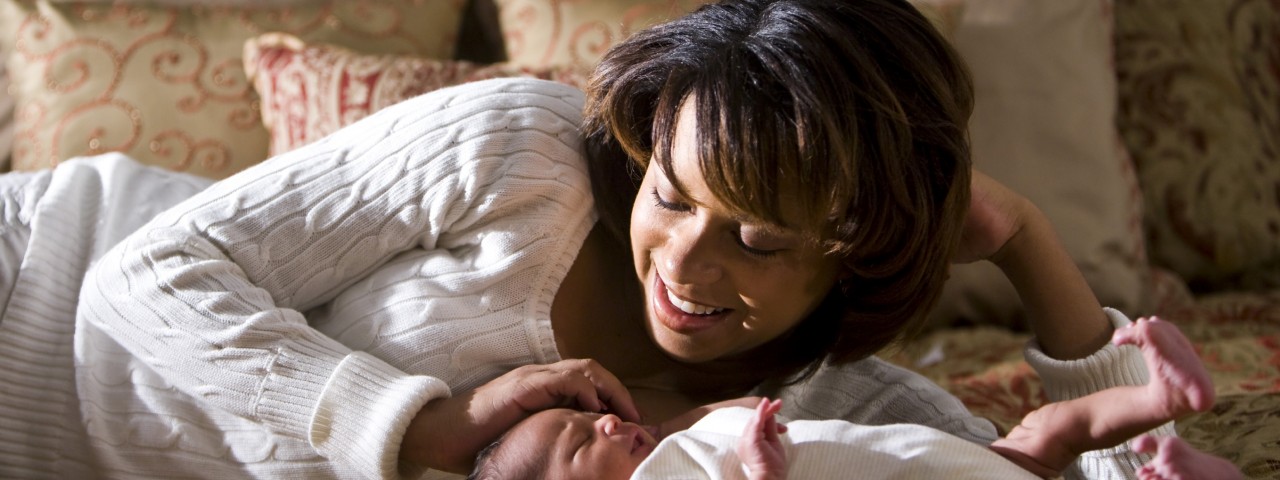Postpartum Depression Affects More Than Mothers
- Tweet

This article is part 5 of our "Tale of Two Children" series. Read Part 1
Her mother and grandmother think that five-year-old Briana is intent on reading her latest Elmo book when Briana suddenly asks: “What is post party impression?”
Briana is greeted with stunned silence, but slowly, her family realizes that she overheard television news reports about the woman who was shot and killed after crashing into the gates of the White House. Early reports mentioned that she had been dealing with postpartum depression.
After a few confused seconds, Briana’s mother explains: “Momma, she means post-partum depression. She just heard that on the TV news.” She turns to Briana, saying: “Sometimes, it’s hard for some mommies after their babies are born because they can’t sleep or they have days when they are really sad. It has a big name - maternal postpartum depression – and most mommies get better because everyone loves them and helps them get healthy.”
Meanwhile, over at Tiffany’s house, postpartum depression is a real life problem. The five-year-old’s mother is worried about her sister, who has been reclusive, unable to sleep, anxious, and exhausted since her baby was born six weeks ago. Layered on top of that is the guilt that she’s a failure.
The casual use of the term during the recent White House incident only confuses things. Postpartum psychosis is often erroneously referred to as postpartum depression; postpartum psychosis is a disorder that includes delusions, disturbed thinking, and hallucinations.
That is not what Tiffany’s aunt has. She has postpartum depression, the most prevalent medical complication of childbearing. Some mothers may experience it mainly while their children are infants or toddlers and others may endure depression that is prolonged or intermittent over many years.
While most women experience some symptoms of depression in the first week or two after giving birth, the landmark CANDLE (Conditions Affecting Neurocognitive Development and Learning in Early Childhood) study of 1,500 Shelby County mothers and young children has shown that more than 11 percent of mothers scored “at risk” for depression at four weeks, and at 12 months, almost 10 percent were “at risk.”
The symptoms of postpartum depression often make it impossible for new mothers to provide positive experiences that encourage healthy brain development. The mothers are trapped by negative moods and thoughts that lead to negative feelings about child rearing and disengagement from the baby itself.
The risks to young children are exacerbated by the fact that it is not commonly understood that they are likely to be affected by depression and these effects may be long-lasting. Tiffany’s aunt has been told by her best friend to “get over it” and “buck up,” which leads to even more guilt and despondency by the new mother. She feels alienated and hopeless, and like the majority of women suffering from postpartum depression, she will not explore various treatment, therapies, and intervention options with her doctor.
There is nothing more important to the early brain development of an infant than her mother’s health. Early exposure to disengaged or unresponsive parenting is a predictor of lower IQ scores, more attention problems, and more learning difficulties.
The consequences for young children are profound, because early exposure to excessive stress disrupts the architecture of the developing brain. The children’s cues (vocalizations and actions) to connect with their mothers are not responded to, and when that interaction is withdrawn for prolonged periods of time, it creates fear and anxiety in the child. This in turn results in the release of chemicals to deal with stress, and if this continues over time, it can interfere with a young child’s ability to learn and increase the risk of emotional disorders.
Maternal depression disproportionately affects children in low-income families whose lives are often characterized by an array of other stressful circumstances. In particular, if the mother is young, socially isolated, and economically disadvantaged, and dealing with family conflict, domestic violence, or substance abuse, it creates an emotional cauldron into which babies and young children are thrust.
In other words, maternal depression matters for children, family, and society. The CANDLE study is shining a light on the dimensions of this problem, and it leaves little doubt that the prevention of maternal depression should be an important priority for our community because it has far-reaching implications for the well-being of the next generation of Memphians and Shelby Countians.
